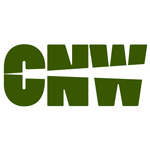North Carolina Indian Tribe’s 4/20 Marijuana Sales Plan Faces Opposition from GOP Senators

The Eastern Band of Cherokee Indians (EBCI) in North Carolina has recently announced plans to venture into the marijuana industry. However, their 4/20 marijuana sales plan has been met with significant opposition from GOP senators. This article delves into the details of this contentious issue, exploring the tribe’s plans, the reasons for the opposition, and the potential implications for both parties.
The EBCI’s Marijuana Sales Plan
The EBCI, a federally recognized Indian tribe in North Carolina, has proposed a plan to legalize medical marijuana on tribal lands. The tribe’s council approved the plan in a 10-2 vote, paving the way for the establishment of a marijuana control board to oversee the cultivation, processing, and sale of medical marijuana. The tribe aims to begin sales on April 20, a date colloquially known as “Weed Day.”
Opposition from GOP Senators
Despite the tribe’s decision, the plan has faced staunch opposition from Republican senators in North Carolina. The senators argue that the legalization of marijuana on tribal lands could lead to an increase in drug trafficking and use in the state. They also express concerns about the potential health risks associated with marijuana use and the lack of regulatory oversight.
Case Study: Senator Thom Tillis
One of the most vocal opponents of the EBCI’s plan is Senator Thom Tillis. He has expressed concerns about the potential for increased drug trafficking and use in North Carolina, stating that the state is already grappling with a significant opioid crisis. Tillis argues that the legalization of marijuana could exacerbate this issue, leading to more substance abuse and addiction cases.
Implications for the EBCI and North Carolina
The opposition from GOP senators could have significant implications for the EBCI and the state of North Carolina. If the senators succeed in blocking the tribe’s plan, it could deprive the EBCI of a potentially lucrative revenue source. On the other hand, if the plan proceeds, it could set a precedent for other tribes and potentially lead to broader marijuana legalization in the state.
Statistics: Potential Economic Impact
According to a study by New Frontier Data, the legal marijuana market in the United States is projected to reach $35 billion by 2025. If the EBCI’s plan proceeds, it could tap into this market and generate significant revenue for the tribe. This could potentially lead to economic growth and job creation on tribal lands.
Conclusion
The EBCI’s 4/20 marijuana sales plan is a contentious issue that has sparked a heated debate in North Carolina. While the tribe sees it as a potential economic boon, GOP senators argue that it could lead to increased drug trafficking and use in the state. As this issue unfolds, it will be interesting to see how it impacts the tribe and the state of North Carolina.
By C.N.W
Keywords: North Carolina, Eastern Band of Cherokee Indians, marijuana sales plan, GOP senators, opposition, Senator Thom Tillis, economic impact
Sources:
- New Frontier Data. (2020). U.S. Legal Marijuana Market Projected to Reach $35 Billion by 2025.
- Eastern Band of Cherokee Indians. (2021). Tribe Approves Medical Marijuana Plan.
- Senator Thom Tillis. (2021). Senator Tillis Opposes EBCI’s Marijuana Sales Plan.


